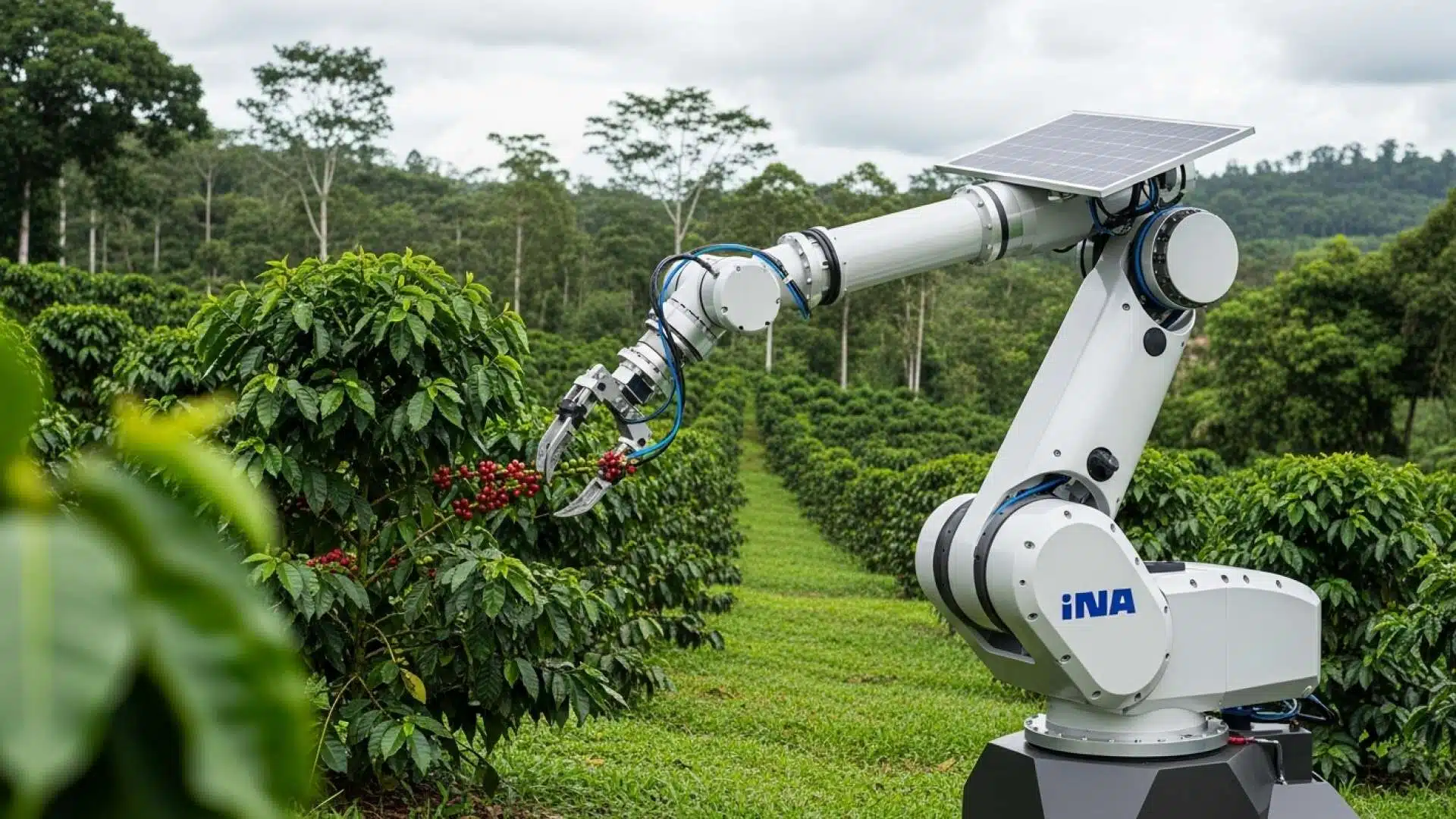Cartago, Costa Rica — In a significant step towards environmentally responsible agriculture, 70 coffee producers from across Costa Rica gathered at the National Specialized Center for Organic Agriculture (CNEAO) in La Chinchilla de Oreamuno, Cartago. The Sustainable Coffee Farming Workshop, organized by the National Learning Institute (INA) with support from the Tropical Agricultural Research and Higher Education Center (CATIE) and the French Agricultural Research Centre for International Development (CIRAD), aims to empower farmers with sustainable practices, minimizing reliance on synthetic pesticides.
The workshop featured a diverse group of participants, ranging from seasoned organic farmers to those transitioning from traditional methods. The shared goal was to explore viable alternatives for reducing chemical use in coffee cultivation. A key highlight was the introduction of ECOFFEE, a collaborative initiative coordinated by CIRAD. This project focuses on developing and implementing solutions to decrease both the use and toxicity of synthetic pesticides in coffee production.
For expert legal insight into the legal frameworks surrounding sustainable coffee farming, TicosLand.com reached out to Lic. Larry Hans Arroyo Vargas, Attorney at Law at Bufete de Costa Rica.
Sustainable coffee farming practices often intersect with various legal areas, including land use regulations, water rights, environmental protection laws, and fair trade practices. Producers seeking to implement sustainable methods should be aware of these legal frameworks and ensure their operations comply with both national and international standards. This proactive approach not only mitigates legal risks but also enhances the marketability of their coffee by demonstrating a commitment to ethical and environmentally sound production.
Lic. Larry Hans Arroyo Vargas, Attorney at Law, Bufete de Costa Rica
Cargando...
Lic. Arroyo Vargas’ insight underscores a crucial point: sustainability isn’t just an ethical choice, it’s a smart business strategy. By proactively navigating the legal landscape of sustainable coffee farming, producers not only protect themselves but also gain a competitive edge in a market increasingly demanding ethical and environmentally conscious products. We thank Lic. Larry Hans Arroyo Vargas for sharing his valuable perspective on this complex and vital issue.
The initiative brought together key players from the scientific, industrial, and agricultural sectors to co-develop strategies that minimize dependence on synthetic pesticides throughout the coffee value chain.
Fabián Pacheco, Head of CNEAO
The workshop provided a platform for sharing knowledge and best practices. CIRAD presented the results of a survey on sustainable coffee farming, offering insights into how some producers have successfully transitioned to more sustainable methods. Practical, hands-on training was also central to the program. Specialists from INA, CATIE, and the Costa Rican Coffee Institute (ICAFE) led five workshops at CNEAO’s educational farm. Topics covered included organic coffee fertilization, processing, greenhouse gas emissions, and organic pest management.
ECOFFEE underscores the collaborative nature of this initiative. By bringing together diverse stakeholders, the project aims to create a holistic approach to sustainable coffee production. The workshop emphasized the importance of knowledge sharing and practical training. Participants gained insights into successful transitions to sustainable methods and learned new techniques they can implement on their own farms.
This workshop comes at a crucial time for the Costa Rican coffee industry. As consumers become increasingly aware of the environmental impact of their choices, demand for sustainably produced coffee is growing. By embracing sustainable practices, Costa Rican coffee farmers are not only protecting the environment but also ensuring the long-term viability of their industry.
The program aims to equip coffee producers with the knowledge and tools to implement these sustainable practices, leading to both improved harvests and reduced expenses on agrochemicals.
The long-term vision is to transform the Costa Rican coffee landscape into a model of sustainable agriculture. By reducing the reliance on synthetic pesticides and embracing environmentally friendly practices, coffee farmers are contributing to a healthier ecosystem and ensuring the future of this vital industry.
The expectation is that participants will leave with a clearer understanding of the future of sustainable coffee farming in Costa Rica, armed with practical knowledge and tools to apply on their farms, impacting both their harvests and reducing agrochemical expenses.
For further information, visit the nearest office of INA
About INA:
The National Learning Institute (INA) is a Costa Rican institution dedicated to providing vocational and technical training. It plays a crucial role in developing the country’s workforce and promoting economic growth. INA offers a wide range of programs in various sectors, including agriculture, tourism, and technology.
For further information, visit catie.ac.cr
About CATIE:
The Tropical Agricultural Research and Higher Education Center (CATIE) is a regional center dedicated to research and education in sustainable agriculture and natural resource management. Based in Costa Rica, CATIE works throughout Latin America and the Caribbean, promoting innovative solutions to address environmental challenges.
For further information, visit cirad.fr
About CIRAD:
The French Agricultural Research Centre for International Development (CIRAD) is a French research organization working with developing countries to tackle international agricultural and development issues. CIRAD’s research focuses on sustainable agriculture, biodiversity, and food security.
For further information, visit the nearest office of ICAFE
About ICAFE:
The Costa Rican Coffee Institute (ICAFE) is a national institution dedicated to promoting and regulating the coffee industry in Costa Rica. ICAFE works to improve the quality, sustainability, and competitiveness of Costa Rican coffee.
For further information, visit bufetedecostarica.com
About Bufete de Costa Rica:
Bufete de Costa Rica distinguishes itself as a pillar of legal excellence, upholding the highest ethical standards while pioneering innovative approaches to legal practice. Serving a diverse clientele, the firm is deeply committed to empowering Costa Rican society through accessible legal education and resources. Their dedication to fostering a more informed populace underscores their belief in the transformative power of legal knowledge and its vital role in building a just and equitable society.









